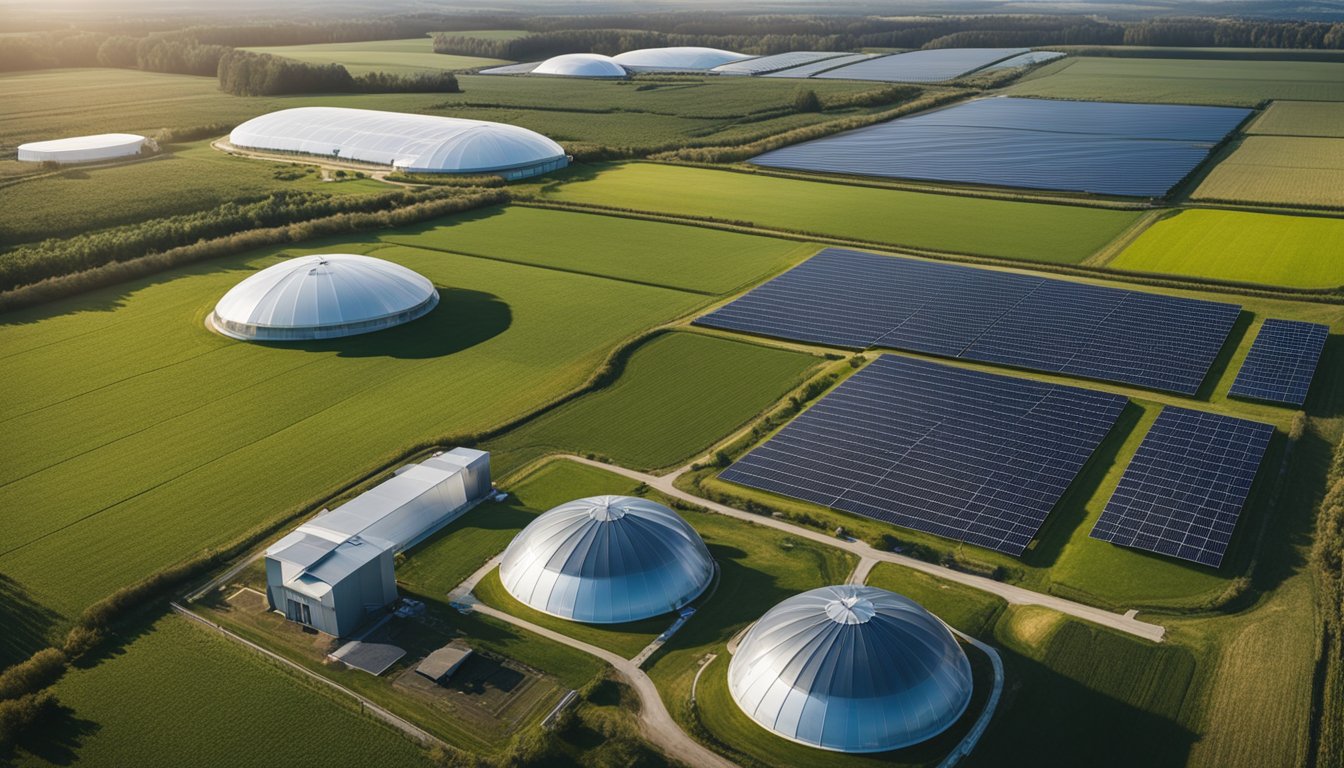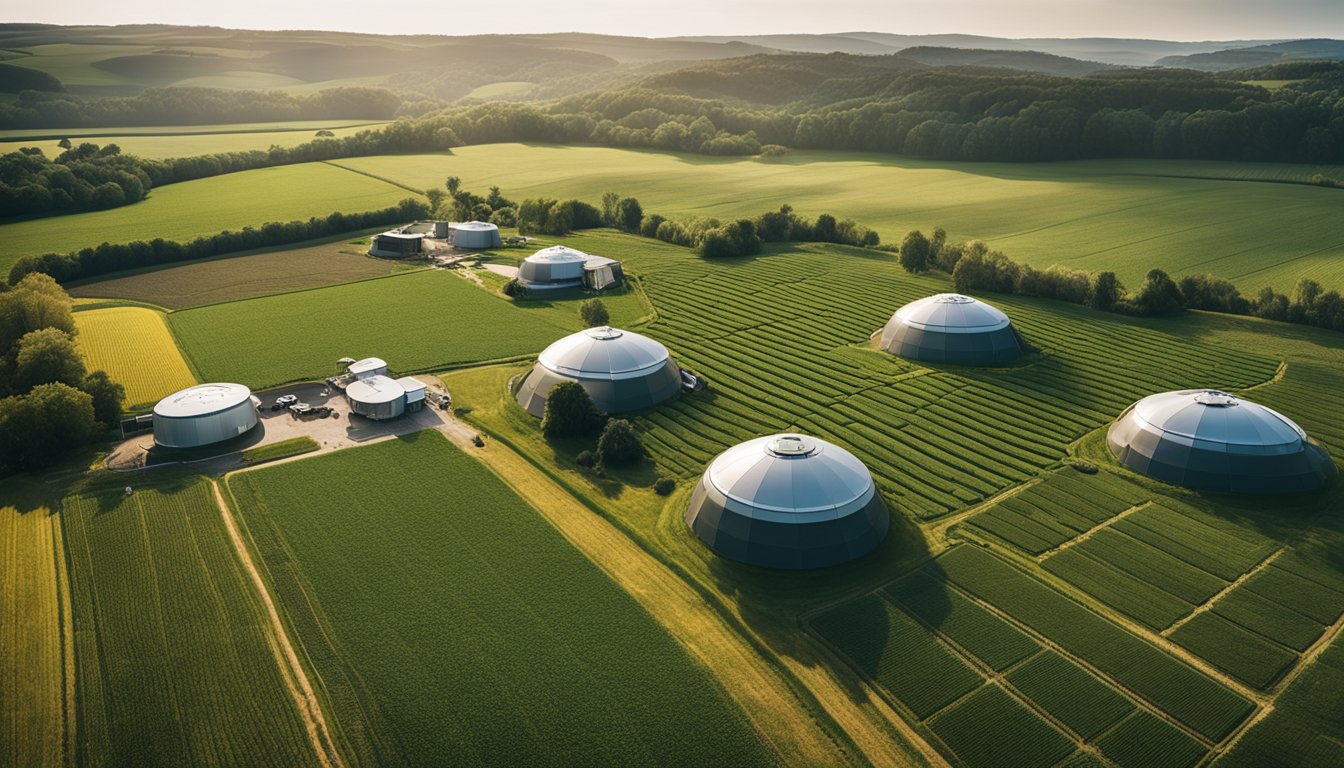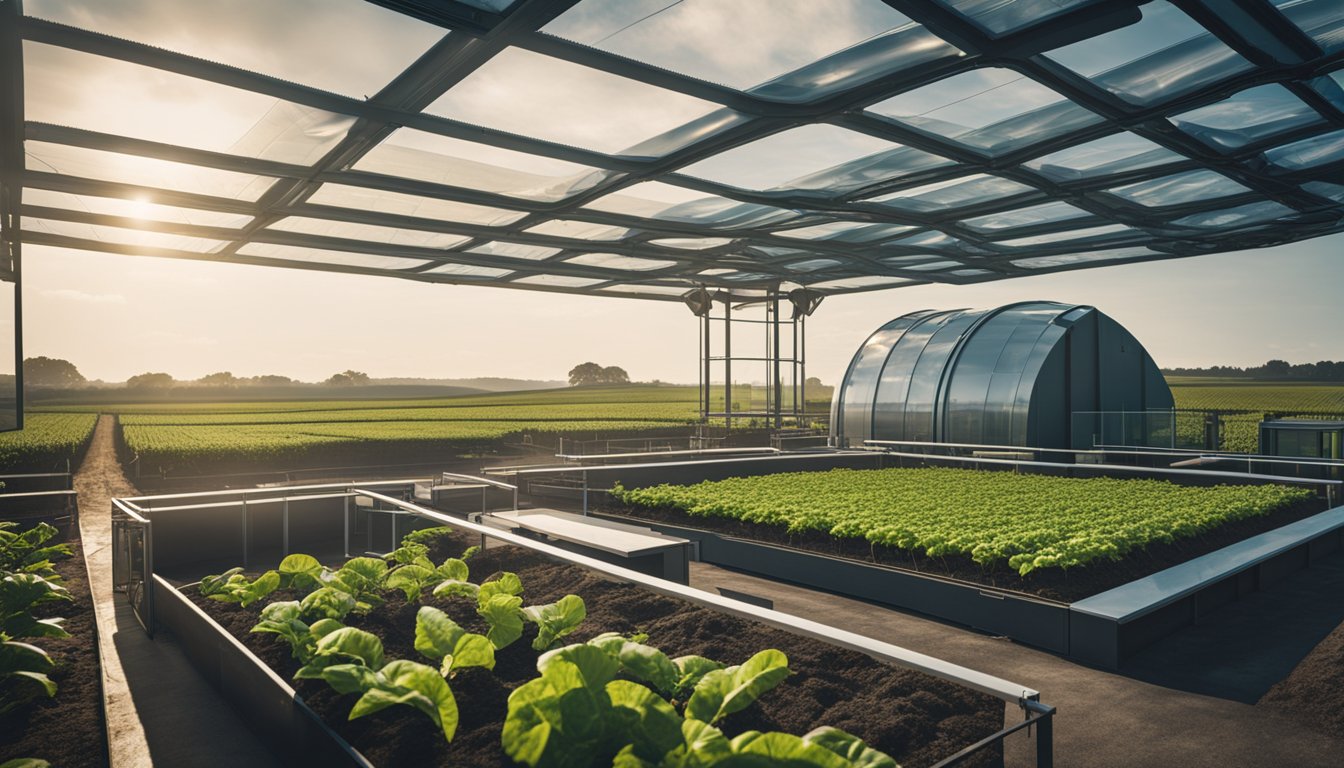Late updated: 25 Oct 2024 16:10
Written by: Oliver Bennett
The Future of Digital Farming in the UK: Innovations and Opportunities
Digital farming in the UK is on the brink of a technological revolution, reshaping how we approach agriculture. With advancements in artificial intelligence and digital twin technology, we're witnessing a transformation that promises increased productivity and sustainability in farming practices. By integrating cutting-edge technologies, UK farmers can adopt more precise methods, enhancing the resilience of agricultural systems against challenges such as climate change.

The role of digital twins in agriculture has been particularly groundbreaking. These virtual models replicate real-world farming environments, allowing us to collect detailed real-time data that drives efficiency and innovation. By harnessing this data, we can implement smarter agricultural practices that not only benefit our farmers but also contribute to the sustainable use of resources.
As we explore these technological advancements, it's essential to consider the long-term impacts on ethics and sustainability. Our shift towards digital farming offers us a chance to address critical questions about food security and environmental conservation. This exploration into digital agriculture is not only about innovations but also about ensuring that our practices align with sustainable and ethical standards.
Key Takeaways
- Digital farming is transforming productivity and sustainability in UK agriculture.
- Technologies like digital twins drive smarter and more efficient farming practices.
- Sustainable and ethical practices are central to the future of digital agriculture.
Key Technologies Shaping UK Agriculture

Our exploration of digital farming in the UK highlights significant technological advancements that are reshaping how we approach agriculture. Primary focus areas include IoT and data analytics, AI and automation, and drone technology, all contributing to smarter and more sustainable farming practices.
The Role of IoT and Data Analytics
The integration of the Internet of Things (IoT) and data analytics into UK agriculture is transforming traditional practices. By deploying sensors and smart devices across farms, we can collect real-time data on weather, soil health, and crop conditions. This data then feeds into decision support systems, enabling more informed and precise farming strategies. Farmers are now able to optimise water usage, reduce resource waste, and enhance crop yields. The use of IoT assists in creating a comprehensive digital picture of farm operations, facilitating predictive maintenance and proactive issue management.
Innovations in AI and Automation
Artificial intelligence and automation are leading to a more efficient agricultural sector. AI is being leveraged for tasks ranging from predictive modelling to improving crop management through personalised recommendations. For instance, autonomous tractors and robotic systems are revolutionising how we handle planting and harvesting, minimising human intervention and increasing productivity. The introduction of smart farming tools, such as AI-driven crop prediction models, helps in adapting quickly to changing environmental conditions. This not only improves operational efficiency but also ensures a more sustainable approach to farming practices.
Drone Technology for Precision Farming
Drones are an essential component of precision farming, offering a bird’s-eye view of agricultural fields. Equipped with advanced sensors and imaging technologies, drones provide critical data on crop health, irrigation needs, and pest infestations. By analysing this data, we can execute precise interventions that optimise crop conditions. Additionally, drones aid in efficient field mapping, ensuring more targeted pesticide application, and reducing chemical runoff. The agility and accuracy of drone technology enhance operational capabilities, leading to increased productivity and better resource management in UK farms.
Sustainability and Ethical Practices

In the evolving landscape of digital farming in the UK, sustainability and ethical practices are at the heart of these advancements. Utilising technology to enhance soil health, improve animal welfare, and manage data responsibly is essential for future-proofing agriculture.
Enhancing Soil Health and Crop Yield
Digital farming technologies offer us new opportunities to improve soil health and optimise crop yield. Precision agriculture tools, such as sensors and drones, allow us to precisely monitor soil conditions, moisture levels, and nutrient content. By applying fertilisers and water selectively, we can minimise waste and reduce environmental impact. This targeted approach not only increases efficiency but also supports sustainable practices, ensuring that the soil remains fertile for future generations. Digital platforms also facilitate the tracking of soil changes over time, aiding farmers in making informed decisions about land management and nutrient application.
Animal Welfare and Environmental Footprint
Ensuring animal welfare is a significant concern in agriculture, and digital technologies are helping us address this challenge efficiently. By using real-time data from sensors and wearable devices, farmers can monitor livestock health, behaviour, and nutritional status. This continuous monitoring enhances animal welfare by allowing prompt interventions. Improved animal welfare also reduces the environmental footprint of farming operations. Healthy animals are generally more productive and require fewer resources, which aligns with our goal of decreasing the overall environmental impact. Technologies such as automated feeding systems and precision livestock farming tools help optimise resource usage, which contributes to the sustainability of farming practices.
Data Privacy and Agricultural Data Sharing
The use of digital technologies in farming generates vast amounts of data, raising important questions about privacy and information sharing. We must ensure that farmers' data is protected, and secure systems are in place for data exchange. Transparent data policies are essential for building trust, enabling farmers to confidently share data that can drive innovation and improve traceability. We must balance the benefits of agricultural data sharing with the need to safeguard privacy, ensuring that the information is used ethically and responsibly. Policies and guidelines are critical in establishing a secure framework for data usage that respects the rights and intellectual property of all stakeholders.
Frequently Asked Questions
In exploring the future of digital farming in the UK, there's a strong focus on advancements in agriculture technology and the potential impact on farmers, with significant interest in government support and overcoming adoption barriers. Let's address these important topics as they shape the future of farming.
What advancements can we anticipate in UK digital agriculture over the next decade?
Over the coming years, we expect a surge in AI-driven tools enhancing precision farming. Digital twins will likely evolve, offering tailored environmental conditions for farms. Innovations like advanced sensor networks and autonomous machinery will become integral to increasing productivity and sustainability in agricultural practices.
How will digital innovations impact small-scale farmers in the UK?
Digital farming tools offer numerous opportunities for efficiency, though small-scale farmers might face challenges with initial costs and tech adoption. Support networks and scalable solutions can help mitigate these issues, enabling smaller farms to benefit from enhanced crop management and productivity increases.
In what ways is the British government supporting the integration of technology in farming?
The UK government is investing in agricultural tech through research funding and policy development. Initiatives like "Self-Learning Digital Twins" reflect this commitment, aiming to equip farmers with cutting-edge tools. Support is extended via grants and partnerships with tech innovators, guiding farmers in technology integration.
What are the main barriers to adopting agricultural technologies in the UK, and how can they be overcome?
Key barriers include high costs, lack of training, and data privacy concerns. Addressing these requires financial support and education initiatives, ensuring farmers are well-equipped to implement new technology. Collaborative efforts between the government, tech firms, and educational institutions can further ease these transitions.
How might digital farming contribute to sustainability and climate change mitigation in the UK?
Digital farming enhances resource efficiency and reduces waste, playing a significant role in sustainability efforts. By optimizing water use and minimising pesticide application, these tools already contribute to lower emissions. This approach aligns with tackling climate change challenges through adaptive and precise farming methods.
What role do data analytics and AI play in the progression of British agriculture?
Data analytics and AI are transforming agriculture in the UK by enabling predictive insights and informed decision-making. Predictive algorithms optimise planting schedules, resource use, and yield estimations. AI's role in analysing vast data sets supports farmers in adopting proactive strategies, elevating farming practices across the industry.
